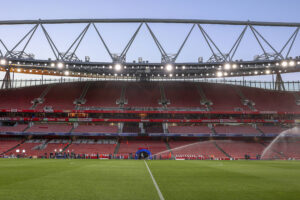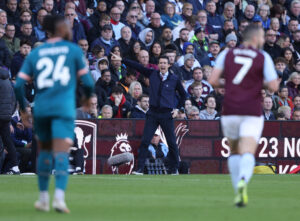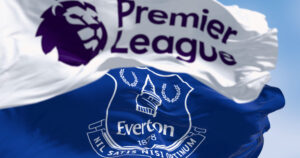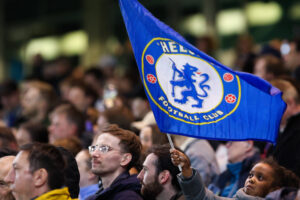For Arsenal, Baku was the car-crash that was waiting to happen. On one of the most disappointing nights in the history of the club, all of their seemingly endless problems were laid bare for the entire football world to see: the almost complete absence of a defence (which is now a problem that goes back at least a decade); the complete lack of any craft, guile or plain old passing ability in midfield (which goes back four years, to the first in the series of injuries that eventually ended Santi Cazorla’s Arsenal career); the utter ineffectualness of Mesut Özil as a number ten, especially in big games away from home (which goes back six years, to Özil’s arrival at the club); and the apparent inability of Unai Emery to stop his team from completely collapsing as soon as they concede a goal (which is another long-standing problem that predates Emery’s own arrival at the club last summer). However, those are only the symptoms of the disease. The disease itself is the disinterested ownership of Stan Kroenke, which is slowly destroying a once-great club, signalling more than ever that Arsenal need a new owner.
Arsenal Need a New Owner More Than New Players or a New Manager
Kroenke is Arsenal’s Main Problem
While all of Arsenal’s other problems were in evidence in Azerbaijan, their main problem – an absentee owner – was noticeable by its absence. On a night when Chelsea’s owner, Roman Abramovich, was present to see his club win yet another European trophy, Stan Kroenke was not even in attendance. Perhaps, like so many Arsenal fans, he had foreseen the footballing catastrophe that lay ahead. More likely, he simply couldn’t be bothered to cross the Atlantic and then the entirety of western Europe to watch the club he owns.
Even more damning than Kroenke’s obvious lack of interest in Arsenal is his obvious lack of investment in the club. As has been proven on numerous occasions, most notably in The Sun article entitled ‘Tight Arse’ , Kroenke, despite being a billionaire (indeed, a billionaire who is married to another billionaire, Ann Walton Kroenke, the heiress to the Walmart fortune), has not significantly invested any of his own money in the club in the near-decade since he first bought a majority share in it.
Kroenke defenders (if there are any, and there surely can’t be many among Arsenal fans) would point to the combined £112 million spent on the team’s star strikers, Alexandre Lacazette and Pierre-Emerick Aubameyang. However, they are very much the exception that proves the rule, and in any case, the bulk of the money spent on them was money that the club itself had generated, from the lucrative Premier League TV contract, its last few years of income from the Champions League and its commercial contracts.
Why Did Kroenke Buy Arsenal?
Of course, what had first attracted Kroenke to buy Arsenal in the first place was the financial wizardry at the time of Arsene Wenger. Especially in the wake of the club’s move to The Emirates, Wenger had somehow maintained his record of qualifying for the Champions League each year, despite spending significantly less money than most of his rivals, particularly Chelsea and Manchester City after they had been bought by a Russian oil baron and the Emirates royal family respectively.
However, not even Wenger could maintain his record of (partial) success on a shoestring indefinitely, especially in the face of such competition. Consequently, after he had failed to qualify for the Champions League for two seasons in succession, he was finally given his marching orders, presumably at Kroenke’s instigation. Even after dismissing Wenger, the same old – indeed, now nearly age-old – problems have continued under his successor, Unai Emery, precisely because Kroenke will not provide the Arsenal manager, whoever it is, with the necessary resources to rebuild the team.
The Importance of an Owner
Every other problem at Arsenal (and as Baku showed, the problems are legion) stems from the single-most important one, which is the fact that the club is owned by a man who is not a fan. It should be a prerequisite for any chairman, owner or president of a club at least to support the club, but it is doubtful that Kroenke was even aware of the existence of Arsenal until Wenger’s impressive financial figures were brought to his attention. The importance of having a chairman who actively cares about their club – who suffers or celebrates with the fans and is therefore truly one of them – simply cannot be underestimated.
There are numerous examples at almost all levels of football of the difference that a good, committed, invested owner can make. Equally, there are numerous examples of the disaster that a disinterested, uncommitted, absentee owner can create.
At the lowest level of English football, Francesco Becchetti’s atrocious reign at Leyton Orient as the club’s owner took them out of the Football League and to the brink of liquidation, until the fans rallied to save the club and a new chairman, Nigel Travis, the chief executive of Baskin-Robbins, stepped in to save it. As many Orient fans have attested to, even more important than Travis’s financial acumen (and that certainly was important) was the fact that he was a die-hard Orient fan who made not just a financial commitment to the club but a personal and emotional one.
Of course, some will say that Orient are a world away from Arsenal, and to some extent that is true, but another example, this time from the Premier League, also shows just how corrosive a bad owner can be. Mike Ashley’s awful, torturous reign as the owner of Newcastle United looks as if it is finally coming to an end, with rumours persisting of a takeover by yet another Arab oil baron, and for long-suffering Newcastle fans (who probably are the longest suffering fans in England, as their club has not won any major trophy of any kind for half a century) it cannot come soon enough.
Moreover, even at the very highest levels of the club game, the twin peaks of Real Madrid and Barcelona, whoever wants to run one of those two giant clubs (and they can only run them, rather than owning them outright, as the clubs are both officially owned by their socios, or members) has to stand for election by the socios. Regardless of any financial or political clout that they might possess, to secure election (or even stand a chance of being elected) the first thing that they have to do is to prove to the fans, if they have not done so already, that they are one of them and a true supporter of the club. On that basis alone, if Arsenal had an ownership model similar to that of the two Spanish giants, Stan Kroenke would never have won the right to manage a club as historically prestigious and successful as Arsenal, simply because he would not have been able to name any of the club’s great players or managers from the recent past, let alone the glorious past of the 1930’s and 1950’s.
How Do You Solve a Problem Like Stan?
Of course, identifying the problem (which in the case of Arsenal is Stan Kroenke) is one thing; doing something about it is quite another. It is precisely because Kroenke’s only real interest in Arsenal is financial that the only realistic way that fans can persuade him to sell up is by cutting off his income stream from Arsenal (an income stream, by the way, that many Arsenal fans are convinced is being used to support the US sporting teams that Kroenke owns, including the LA Rams American football team). That would necessitate some kind of mass boycott, either of The Emirates completely, or perhaps of the food, drink and other items on sale at the club. As recent history shows, that will not be easy to achieve, as many fans (with some justification) believe that it would be wrong to boycott the club and wrong not to attend matches, especially if they have already paid for them.
However, in the absence of a mass, concerted boycott it is virtually impossible to think of anything else that will force Kroenke either to make a serious investment in the club or sell up to someone who will. In that case, the same old, now age-old problems at Arsenal – the complete lack of a defence, the lack of a midfield playmaker, and Özil – will just persist, and in time escalate further. In that situation, Arsenal will need a miracle-worker to try and achieve Champions League football on a Europa League budget (and, equally importantly, with a Europa League outlook).
If Stan Stays, Arsenal Will Need a Miracle-Worker
Presently, there is only one man in English football, and arguably in the whole of European football, who can legitimately be said to be a footballing miracle-worker, i.e. someone who, like Arsene Wenger before him, has achieved something that had hitherto been thought impossible, it is Eddie Howe at Bournemouth. His record of saving the Cherries from going into administration, taking them through the leagues to the Premier League and then consolidating their position in the top flight, all on the smallest average attendances of any club that has ever been in the Premier League, is arguably the single-most extraordinary managerial achievement in the Premier League era.
However, even if Emery eventually leaves the club (now that he has been thrashed in a Europa League Final, his supposed credentials as a ‘Europa League specialist’ have been shredded), and even if Kroenke somehow belatedly finds the courage and the vision to approach a manager who is untested at the highest level, why on earth would Eddie Howe want to join a club as dysfunctional as Arsenal, whose dysfunction begins right at the top, in the form of an owner who clearly does not care enough about the club to invest any of his own money (or, indeed, any of his own time) in it?
Main Photo






